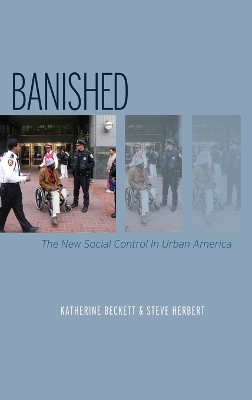Studies in Crime and Public Policy
2 total works
Most Americans are not aware that the US prison population has tripled over the past two decades, nor that the US has the highest rate of incarceration in the industrialized world. Despite these facts, politicians from across the ideological spectrum continue to campaign on "law and order" platforms and to propose "three strikes"--and even "two strikes"--sentencing laws. Why is this the case? How have crime, drugs, and delinquency come to be such salient political issues, and why have enhanced punishment and social control been defined as the most appropriate responses to these complex social problems? Making Crime Pay: Law and Order in Contemporary American Politics provides original, fascinating, and persuasive answers to these questions.
According to conventional wisdom, the worsening of the crime and drug problems has led the public to become more punitive, and "tough" anti-crime policies are politicians' collective response to this popular sentiment. Katherine Beckett challenges this interpretation, arguing instead that the origins of the punitive shift in crime control policy lie in the political rather than the penal realm--particularly in the tumultuous period of the 1960s.
With urban poverty rising and affordable housing disappearing, the homeless and other "disorderly" people continue to occupy public space in many American cities. Concerned about the alleged ill effects their presence inflicts on property values and public safety, many cities have wholeheartedly embraced "zero-tolerance" or "broken window" policing efforts to clear the streets of unwanted people. Through an almost completely unnoticed set of practices, these people are banned from occupying certain spaces. Once zoned out, they are subject to arrest if they return-effectively banished from public places. Banished is the first exploration of these new tactics that dramatically enhance the power of the police to monitor and arrest thousands of city dwellers. Drawing upon an extensive body of data, the authors chart the rise of banishment in Seattle, a city on the leading edge of this emerging trend, to establish how it works and explore its ramifications. They demonstrate that, although the practice allows police and public officials to appear responsive to concerns about urban disorder, it is a highly questionable policy: it is expensive, does not reduce crime, and does not address the underlying conditions that generate urban poverty. Moreover, interviews with the banished themselves reveal that exclusion makes their lives and their path to self-sufficiency immeasurably more difficult.
At a time when more and more cities and governments in the U.S. and Europe resort to the criminal justice system to solve complex social problems, Banished provides a vital and timely challenge to exclusionary strategies that diminish the life circumstances and rights of those it targets.
At a time when more and more cities and governments in the U.S. and Europe resort to the criminal justice system to solve complex social problems, Banished provides a vital and timely challenge to exclusionary strategies that diminish the life circumstances and rights of those it targets.

